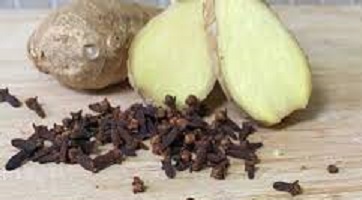Hunteria Umbellata: Osu Fruit/Abere Benefits and More
Hunteria umbellata: Osu Fruit/Abere Benefits and More. Please watch:
- Health benefits of Abere seed (Hunteria Umbellata)
- What is Hunteria umbellata (Abere in Yoruba, Nkpokiri in Igbo)?

Hunteria Umbellata is the botanical name for the medicinal seed known as abere seed. Osu fruit seeds are bitter in flavor. As soon as you eat the soft seed inside and remove the shell, it’s typically utilized to treat a variety of illnesses. It can be used alone or in combination with other herbs to boost their potency.
Abere seeds, sometimes referred to as Miracle or Wonder seeds, are used to cure a number of medical conditions, including low libido, diabetes, high blood pressure, rapid or premature ejaculation, and weak erections.
Hunteria Umbellata: Osu Fruit/Abere Benefits, Uses and More: an Overview
In Nigeria and throughout Africa, new and unusual fruits are always being discovered, along with their various applications and health advantages.
The “osu fruit,” scientifically known as “Hunteria Umbellata,” is one such fruit that we will discuss today.
Features of Osu Fruits/Hunteria Umbellata: Osu Fruits’ characteristics
This fruit is indigenous to West Africa and thrives in the continent’s tropical areas, including Ghana, Nigeria, and Angola.
In Nigeria, it is referred to as Osu in Edo, Abere or Erin in Yoruba, and Nkpokiri in Igbo.
The rainforest is where the Osu tree is primarily found. Because of the seeds, the fruits that the short trees bear are very sought for.
When unripe, this non-perishable fruit resembles an avocado bear, but it’s tougher and occasionally larger.
The fruit tree bears blossoms throughout the year.
This is one characteristic that sets it apart from other species that are similar but confusing, such as Picralima nitida and Hunteria Congola Pichon.
Picralima nitida, also called abere (akuamma), is a member of the same tribe and family as well as having more seeds.
The fruit is green at first, but as it ripens and matures, it becomes lighter green and eventually yellow.
Similarly, as the fruit ripens, the pulp gets denser and allows the seeds to come out more easily.
Nutritional value of OSU fruit
Osu fruit is high in potassium, magnesium, sodium, fibre, and low in calories and proteins.
How To Eat Osu Fruit
How Osu fruit is eaten
The osu fruit is primarily prized for its seeds, though occasionally the pulp is also consumed, in contrast to many other fruits that are eaten for their juicy pulp.
The seeds are most often ingested as a decoction since they have several therapeutic (albeit bitter) properties that can be used to cure a variety of illnesses.
Cut open the pod-like flesh with a sharp knife; remove the seeds and wash well; soak in a jar or container for a minimum of 24 hours to ensure optimal extraction of the active ingredients; make sure the fruit ripens if you are targeting the seeds, otherwise plan to soak the entire fruit in water.
- Take 10 milliliters each morning and night; periodically check blood pressure and blood sugar levels to modify dosage.
Osu fruit and fertility ~ May boost male sexual health
In some parts of the country, the osu fruit is used in herbal remedies to control menstrual flow in addition to preventing miscarriages.
According to some studies, osu fruit may be useful in boosting sexual health in men. A 2018 study discovered that extracts of Hunteria umbellata possessed erection-stimulating abilities by inhibiting some of the key enzymes that cause erectile dysfunction. Another 2019 study stated that Hunteria umbellata could be useful in the management of male sexual-related disorders since it improved nitric oxide levels and reduced arginase activity in men.
It was also said to have male-fertility-enhancing activities. Thus, the fruit might also have aphrodisiac properties.
Remedy for diabetes (Abere seed and coconut water)
Get abere seed and coconut water (get one with enough water; 5-7 heads will do, depending on the water inside).
Method
Firstly, remove the shell of the abere and grind it to powder form, then mix it with coconut water, put it in a keg and lastly, allow it to ferment for 24 hours.
Dosage
Take half a cup twice daily. Morning on an empty stomach and last cup before going to bed.
Note
Always check your sugar level
How to use abere seeds as a remedy for early ejaculation, weak erection, low libido, and rapid ejaculation
Simply soak abere seed with coconut water and 4 pieces of garlic for 24 hours only and drink a teaspoon or a shot.
Usage
Morning and night
How to Make Osu/Abere Seed Powder
It’s possible that few people have the time to prepare the seed decoction. Therefore, for convenience, it is simple to turn it into powder.
Remove the seeds from the ripe fruit; wash well and strain through a sieve; spread out on a tray and let dry; ensure it dries completely to facilitate easy blending and prevent moth growth; blend well and store in a glass jar.
How to Use Powdered Osu/Abere Seeds
Osu fruits are so potent that you have to ingest them in little doses. Unless you’re prepared for a catastrophic drop in blood pressure and glucose levels.
Thus, take ½ teaspoon of powdered osu fruit and drink it in the morning and at night, at least 15 minutes before meals.
You can also make pills out of this powder and add it to cereals, smoothies, and tea. Osu fruit is used medicinally in the area to treat a variety of conditions;
Leprosy sores, diabetes, fever, liver issues, menstruation pain, stomach aches, intestinal worms, anemia, ulcers, labor pain and management, inflammation, and even obesity are among the conditions that can arise.
Osu Fruit and Tree Uses; What is osu used for?
Ground Osu is mostly used in Nigeria and other Western African countries as a thickening agent for soups. Whether you are a professional chef or just enjoy preparing fancier meals for your family, you have undoubtedly created soups or sauces before that just didn’t have the desired thick, velvety texture.
Additional Uses:
- The Osu tree makes excellent hardwood. In addition, it is used as fuel, carved, and made into small tools like combs, police batons, and shuttle weaving. The plant’s milky sap, or latex, is utilized as an arrow poison. It is typically applied to the arrowheads and darts used in combat and animal hunting.
Knowing the benefits of each fruit might help us avoid aggravating existing health issues or jeopardizing our wellbeing completely.
This fruit may have side effects that many people are unaware of. Consequently, making the greatest use of the fruits will be aided by being aware of the dangers and toxins they contain.
Is the Osu Fruit Toxic?
The tree’s entire portion is toxic. In fact, it’s used illegally by nasty gangs in some nations.
This is the reason it’s best not to soak the entire fruit in water.
because the fruit contains deadly milky sap, which they also consume in little amounts.
Instead, thoroughly wash the seeds in the previously specified water before soaking them to use.
The toxicity profile of osu fruit taken orally has been found to be minimal. However, poisoning is likely to occur if taken incorrectly and for an extended period of time.
To determine when to quit, exercise caution when consuming, and keep an eye on your blood pressure and blood sugar levels.
What is the Yoruba name for Picralima nitida?
Abeere
It is found in tropical African nations like Gabon, Nigeria, Uganda, and Ivory Coast. The Yoruba people in southwest Nigeria refer to it as “Abeere.”
Health Benefits of Osu Fruit; The Osu Fruit’s Health Benefits
- Lowers the level of blood glucose
The seeds are prepared and then extracted or decocted to treat excessive blood sugar.
Patients with type 1 and type 2 diabetes are strongly encouraged to utilize this medication because of its great effectiveness.
The seeds function by raising blood glucose levels and glucokinase activity.
Consuming this seed’s decoction will lower your blood sugar, but take caution so that it doesn’t drop too much below average.
And please don’t take this fruit or seed if you don’t have blood sugar problems because it can drastically lower your sugar levels, which can result in low sugar.
- Eliminates Worms
The plant’s aqueous extract, which includes the seeds, stem bark, and leaves, has demonstrated positive anti-helminthic efficacy.
Nonetheless, the stem bark is the component of the plant that affects activity the most.
Consuming the stem bark’s aqueous extract aids in the destruction of helminths, or parasitic worms, which can infect people. Examples of these worms are filaria, guinea, and freshwater parasite worms.
Additionally, it eliminates intestinal worms (geohelminths), such as roundworms and hookworms, that damage the digestive system.
It also demonstrated efficacy in getting rid of earthworms in tests conducted on them.
- Resolves Digestive Problems
In the majority of conventional methods, the plant’s bark and root both help with digestive problems.
It is typically prepared as a bitter tonic and taken as medicine for the stomach.
This tonic helps with digestion, lessens pain and aches in the stomach, and even increases appetite.
- Control Blood Flow
The osu fruit is utilized in several regions of the nation in herbal therapies to control menstrual flow and avoid miscarriages.
For this treatment, the root works incredibly well. It is used as a decoction or as a root extract.
- Handles fever
The bark of the osu tree is an excellent remedy for fever. Usually, it is used as lotion after being cleaned and soaked in water.
You must bathe and cover your entire body with the aqueous extract. It enters the body to bring the temperature back to normal and lower fever.
- Handle Leprosy Wound
Leprosy is a skin ailment that is very contagious yet treatable. The osu tree’s root bark, particularly the young one, might lessen leprosy-related skin lesions.
All you have to do is dab the hurting area morning and night after taking a bath with the fresh root-bark extract.
In addition to this broad range ailments, the osu seed can also help treat yaws, piles, and stomach ulcers. Additionally, liver issues, hernias, and stomachaches can be treated with either the bark or the fruit decoction.
In conclusion
Hunteria umbellata, or osu fruit, is becoming extinct, just as many other unusual fruits.
For this reason, sufficient study and research ought to be done to safeguard plants that are profitable for use as both medicines and other products.
Here are some common questions and answers about the health benefits of Osu fruit (Hunteria umbellata):
What is Osu fruit?
Osu fruit, scientifically known as Hunteria umbellata, is a tropical fruit native to West Africa. It’s commonly found in countries like Nigeria, Ghana, and Cameroon.
What are the health benefits of Osu fruit?
Osu fruit is rich in nutrients and bioactive compounds, making it beneficial for health. Some potential health benefits include its ability to lower blood sugar levels, promote weight loss, boost immune function, and improve digestion.
How does Osu fruit help in lowering blood sugar levels?
Osu fruit contains compounds that may help improve insulin sensitivity and regulate blood sugar levels. This can be beneficial for individuals with diabetes or those at risk of developing the condition.
Can Osu fruit help with weight loss?
Yes, Osu fruit is low in calories and high in fiber, which can help promote feelings of fullness and reduce overall calorie intake. Additionally, its ability to regulate blood sugar levels may also support weight management efforts.
Does Osu fruit have any immune-boosting properties?
Yes, Osu fruit is rich in antioxidants, such as flavonoids and polyphenols, which can help strengthen the immune system and protect against oxidative stress and inflammation.
How can Osu fruit improve digestion?
Osu fruit contains dietary fiber, which can promote healthy digestion by adding bulk to the stool and preventing constipation. Additionally, its natural enzymes may help improve nutrient absorption and support overall gut health.
Are there any other potential health benefits of Osu fruit?
Some studies suggest that Osu fruit may have anti-inflammatory, antimicrobial, and cardiovascular benefits, although more research is needed to confirm these effects.
How can Osu fruit be incorporated into the diet?
Osu fruit can be eaten fresh or incorporated into various dishes, such as salads, smoothies, and desserts. It can also be dried and used as a flavoring agent or herbal remedy in traditional medicine.
Are there any potential side effects or precautions associated with Osu fruit consumption?
While Osu fruit is generally considered safe for most people when consumed in moderation as part of a balanced diet, some individuals may experience allergic reactions or digestive issues, particularly if consumed in large amounts.
Additionally, individuals with certain medical conditions or those taking medications should consult with their healthcare provider before adding Osu fruit to their diet to ensure it’s safe for them.
Is there any scientific evidence supporting the health benefits of Osu fruit?
While there is some preliminary research supporting the potential health benefits of Osu fruit, more studies, including randomized controlled trials in humans, are needed to further investigate its effects on various health outcomes.
It’s essential to rely on high-quality scientific evidence when evaluating the efficacy of any food or supplement for health purposes.
Can Osu fruit be used as a natural remedy for any specific health conditions?
Some traditional medicine practices utilize Osu fruit for its purported medicinal properties, including its potential to treat conditions like diabetes, digestive disorders, and infections. However, more research is needed to determine the efficacy and safety of Osu fruit for these purposes.
Where can Osu fruit be found?
Osu fruit is primarily grown in West Africa, where it is native to countries like Nigeria, Ghana, and Cameroon. It may also be available in specialty stores or markets in regions with West African communities. In some cases, Osu fruit or its extracts may be sold in the form of dietary supplements or herbal remedies.
Is Osu fruit commonly used in culinary traditions?
Yes, Osu fruit is often used in traditional West African cuisine, where it is incorporated into various dishes for its unique flavor and nutritional benefits. It can be eaten fresh, dried, or processed into products like jams, sauces, and beverages.
Remember to consult with a healthcare professional before making significant changes to your diet or incorporating new foods for specific health purposes.
Disclaimer: There is currently no medical approval for these procedures. Thus, for appropriate counseling, always talk to your doctor before switching to herbal medicines.


